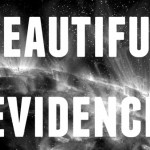Cinema
The new film Arrival, based on a story by Ted Chiang, is unlike most any science fiction blockbuster at the box office these days. It's a tense, thoughtful, somber meditation on the human condition and the nature of a higher reality. In many ways, it is a religious film that deals with eschatology (the end times or judgment day).
Unlike Chad Orzel, I haven't read the source material, so I experienced the film with fresh eyes. I was immediately reminded of Philip K. Dick and his real-life experience of being 'touched by an angel.' Dick, both a life-long Christian and prolific author of…
It was high times for the Rebel Alliance at the end of Return of the Jedi (1983). Across the galaxy, crowds rejoiced at the destruction of the second Death Star and the apparent defeat of Emperor Palpatine. Princess Leia Organa, who two films earlier had seen her home planet exploded for sport, was re-united with a twin brother she never knew she had, becoming aware of her own Force sensitivity, and in love with a swashbuckling hero who would later father her son. It was a resounding victory, and deservedly so, even if Ewoks had to help.
The Force Awakens begins thirty years later,…
To scientists, "experimental" is a technical word, one with a precise meaning: that which relates to a procedure of methodical trial and error, to a systematic test for determining the nature of reality. I got in trouble on this blog once, with commenters, for using the word "experimental" too flippantly.
But artists experiment too, of course. Their method of inquiry is different, free from the rigidity that characterizes the scientific method. Artistic experiments are designed to be singular; they aren't supposed to be repeated. They have no control variables. Often, even the…
I recently read David Kirby's new book on science film consulting. This book is an absolute must-read for anyone even remotely or subconsciously interested in being a science consultant for the next Iron Man or Transformers, or smaller budget real-life dramas with real-life science in them. His book is both easy and interesting to read - and is filled with information. He explores the history of science-consulting, going all the way back to "Woman in the Moon" and of course the still canonical "2001: A Space Odyssey", and discusses a large number of recent examples. He does not glorify…
The National Science Foundation and the National Academy of Sciences each are spearheading programs designed to get more accurate science into the movies, and they have two somewhat different approaches to this same "problem". Each presented its plan during a couple of sessions at this year's AAAS National Meeting. The National Academy of Sciences had a session on its "Science and Entertainment Exchange" program, which is celebrating its one-year anniversary. This program acts as a matchmaker service for Hollywood producers and directors, who can contact the Exchange and ask for an "expert…
Speaking of bug horror movies:
If you can make it to Champaign-Urbana this weekend, the 2010 Insect Fear Film Festival will feature The Black Scorpion (1957) and Ice Crawlers (2003). The grad students are assembling art displays, face painting, and an impressively large arthropod petting zoo. The've even shipped in live horseshoe crabs, as well as bess beetles, tarantulas, ginormous grasshoppers & cockroaches, and others. It's tremendous fun.
Despite occuring only rarely, amnesia (or memory loss) has featured often in Hollywood films for almost a century. By 1926, at least 10 silent films which used amnesia as a plot device had been made; more recent productions, such as 50 First Dates and Eternal Sunshine of the Spotless Mind, are therefore part of a well established tradition.
In a review published in the British Medical Journal in 2004, clinical neuropsychologist Sallie Baxendale of the Institute of Neurology in London points out that cinematic depictions of amnesia are consistenly inaccurate, and usually "bear no…
tags: Iceland, nature, Eva Sturm, Sigur Ros, streaming video
This spectacular video focuses on Iceland. Land of contrasts: Hot water and Ice, situated in the North Atlantic, right above the mid-ocean ridge that separates America and Europe. [6:12]
Iceland from Eva Sturm.
The cinematographer writes:
Shooting was done in two stays (2 weeks each) in 2005 & 2006 (both in September) with a result of 15 hours of footage.
Camera was a SONY Z1. I used some COKIN semi-grey Filters extensivley to get the sky as dark as I wanted it to be. Almost no color correction was done in the post, but the…
Researchers from the Computational Neuroimaging Laboratory at New York University recently carried out a study of the effects of films on viewers' brains.
Hasson et al scanned the brains of 45 participants whilst they watched scenes from a number of films and television programmes. Not surprisingly, they found that all the scenes activated numerous and diffuse regions of the cerebral cortex - visual areas in the occipital lobes, auditory and language centres in the temporal lobes, and so on.
The data obtained were then subjected to a newly-developed statistical method called inter-subject…
Following the fall of the Berlin Wall in 1989, the headquarters of the Stasi (the East German secret police) were found to contain a large room in which many thousands of "smell jars" were stored.
Each jar contained an odour sample from a suspect, collected either during interrogation, by means of a perforated iron smell sample chair, or by breaking into the suspects' homes and stealing their dirty underwear.
The smell samples were collected so that released suspects could be found for further interrogation at a later date. Stasi agents would then retrieve the suspect's sample, and give it…
The great filmmaker Alfred Hitchcock had a profound insight into the workings of the human mind. "There is no terror in the bang, only in the anticipation of it," he once said, and the shower scene from Psycho, demonstrates this perfectly.
This scene is one of the most shocking ever filmed. Yet, it does not include any shots of the knife penetrating the flesh of Janet Leigh's character, and the only hint of blood comes right at the end, when it flows into the plughole.
The Mad Mother Psychoshower Curtain above is available from PrankPlace.com, and costs $24.99.
The vilification of Arabs in American popular culture serves an ideological purpose: the dehumanization of America's "enemy" in the "clash of civilisations".
(Via Woman of Color Blog)
At Wired, filmmaker Ridley Scott discusses the forthcoming remastered final cut of Blade Runner. This classic 1982 film depicts a dystopian futuristic society based on artificial intelligence and genetic engineering, and was recently voted as the best science fiction film ever made by 60 top scientists.
The interview includes quotes about the film from various people, including this one, in which Craig Venter, the billionaire geneticist who has just had his genome published, gives his views on cognitive enhancement:
The movie has an underlying assumption that I just don't relate to:…
The New York Times has an article about how Richard Dawkins, PZ Myers and Eugenie Scott (director of the National Center for Science Education) were duped into appearing in Expelled, a film that puts forward the case for intelligent design and depicts science as something that limits freedom of thought.
PZ has written about the affair at length.
IN The Matrix (Andy and Larry Wachowski, 1999) Keanu Reeves plays a computer programmer who leads a double life as a hacker called "Neo". After receiving cryptic messages on his computer monitor, Neo begins to search for the elusive Morpheus (Laurence Fishburn), the leader of a clandestine resistance group, who he believes is responsible for the messages. Eventually, Neo finds Morpheus, and is then told that reality is actually very different from what he, and most other people, perceives it to be.
Morpheus tells Neo that human existence is merely a facade. In reality, humans are being '…
"What is matter? Never mind. What is mind? Never matter." So says Homer, in one episode of The Simpsons. And although I'm not an adherent of Homerian dualism, the show is still my favourite thing on television. I think it's sheer genius.
The Simpsons often contains science-based jokes and references to evolution, cosmology and particle physics. In one episode, for example, Homer enters a parallel universe through a wormhole; another features Stephen Hawking, who Homer refers to as "the wheelchair guy".
One of my favourite episodes is Lisa the Sceptic (Season 9, Episode 8) in which Lisa…
The term 'Rashomon effect' is often used by psychologists in situations where observers give different accounts of the same event,and describes the effect of subjective perceptions on recollection. The phenomenon is named after a 1950 film by the great Japanese director Akira Kurosawa. It was with Rashomon that Western cinema-goers discovered both Kurosawa and Japanese film in general - the film won the Golden Lion at the Venice Film Festival in 1951, as well as the Academy Award for Best Foreign Language film the following year.
Rashomon is an adaptation of two short stories by Akutagawa…
Alfred Hitchcock (1899-1980) was one of the most outstanding filmmakers of the twentieth century. In a career spanning six decades, Hitchcock made 53 films, the best of which are at once suspenseful, exciting, disturbing, funny and romantic.
The 'master of suspense' pioneered many of the techniques of the thriller genre, and remains highly influential to this day. He was, for example, one of the first directors to portray psychological processes in film narrative.
However, his films were initially more popular with audiences than with critics, and it was not until the latter part of his…

